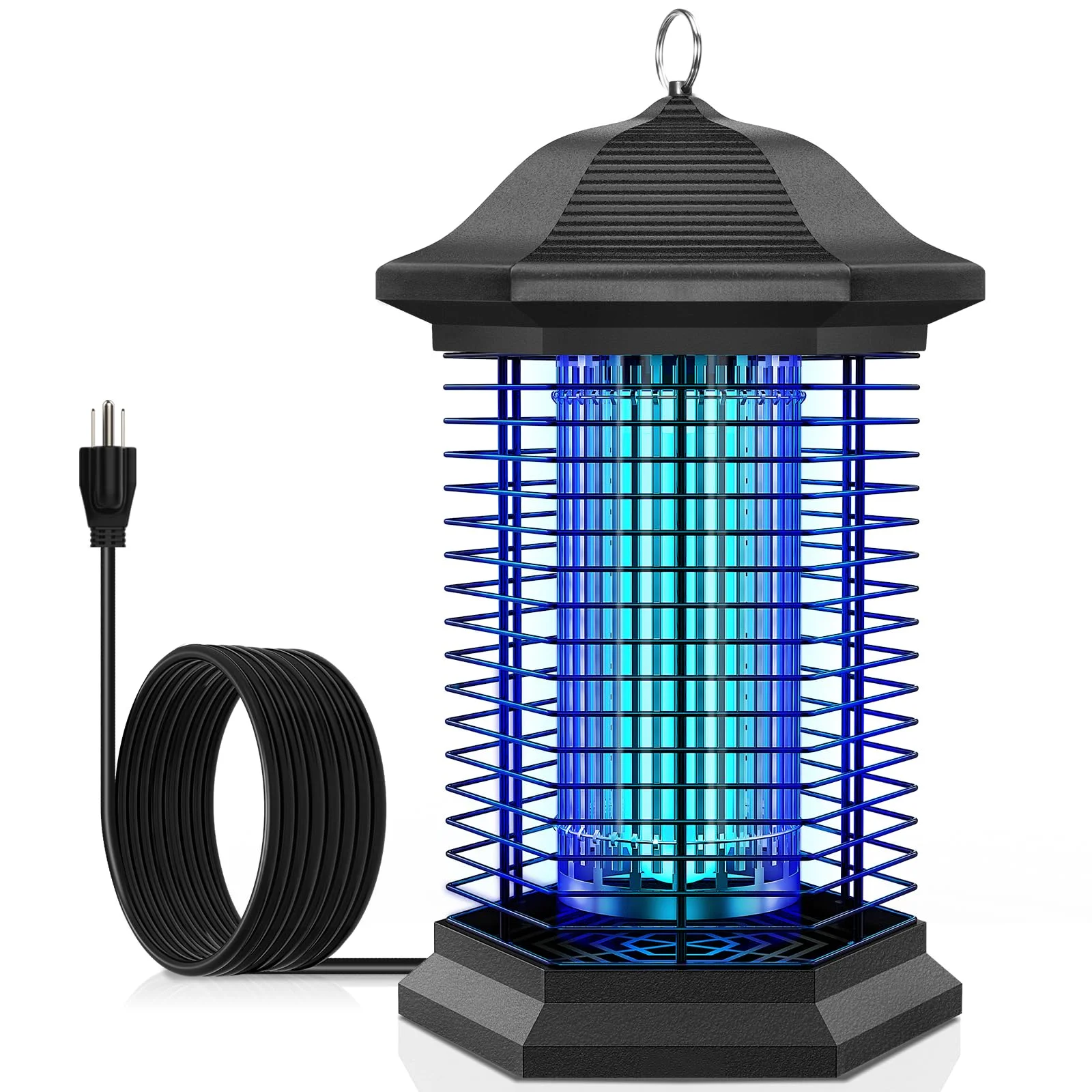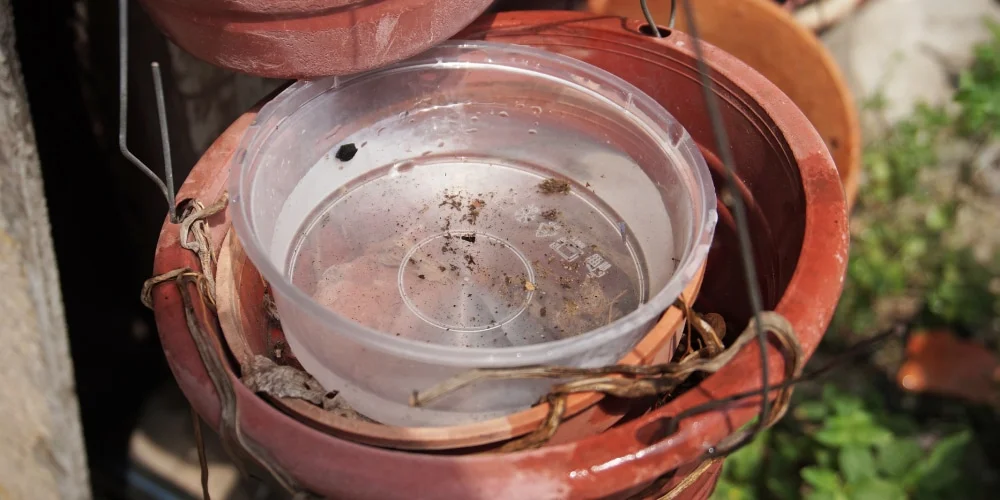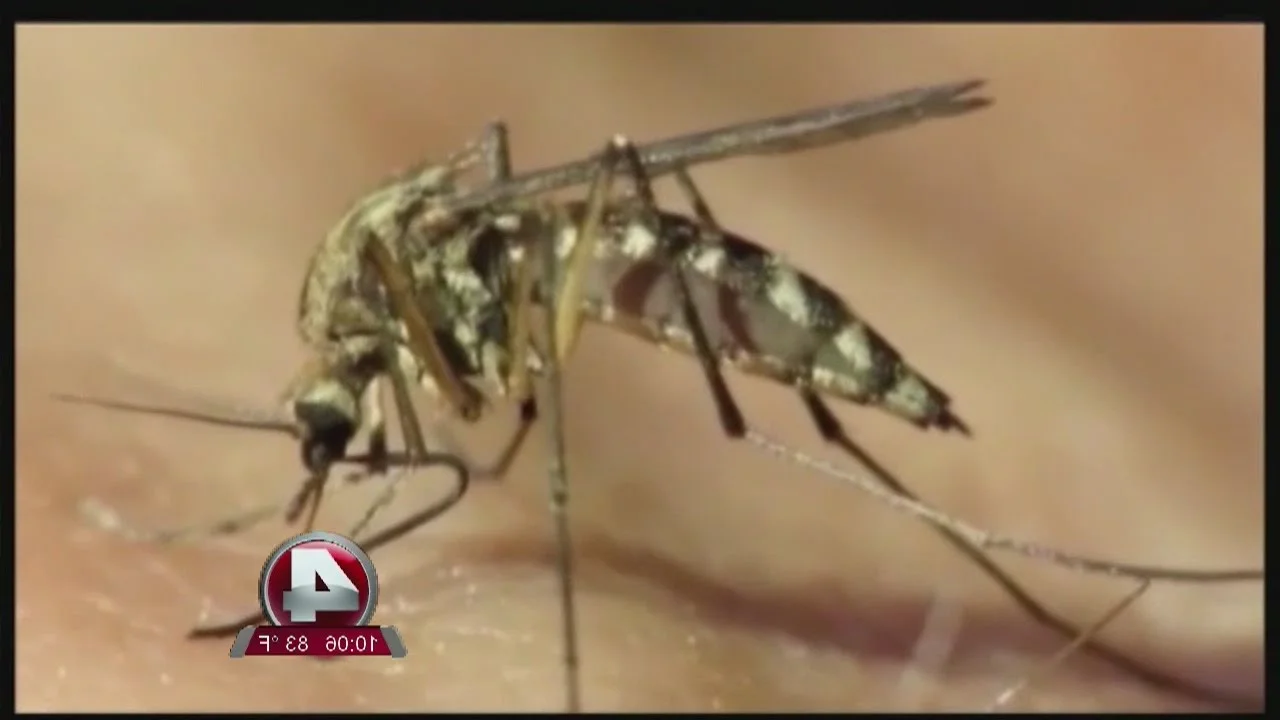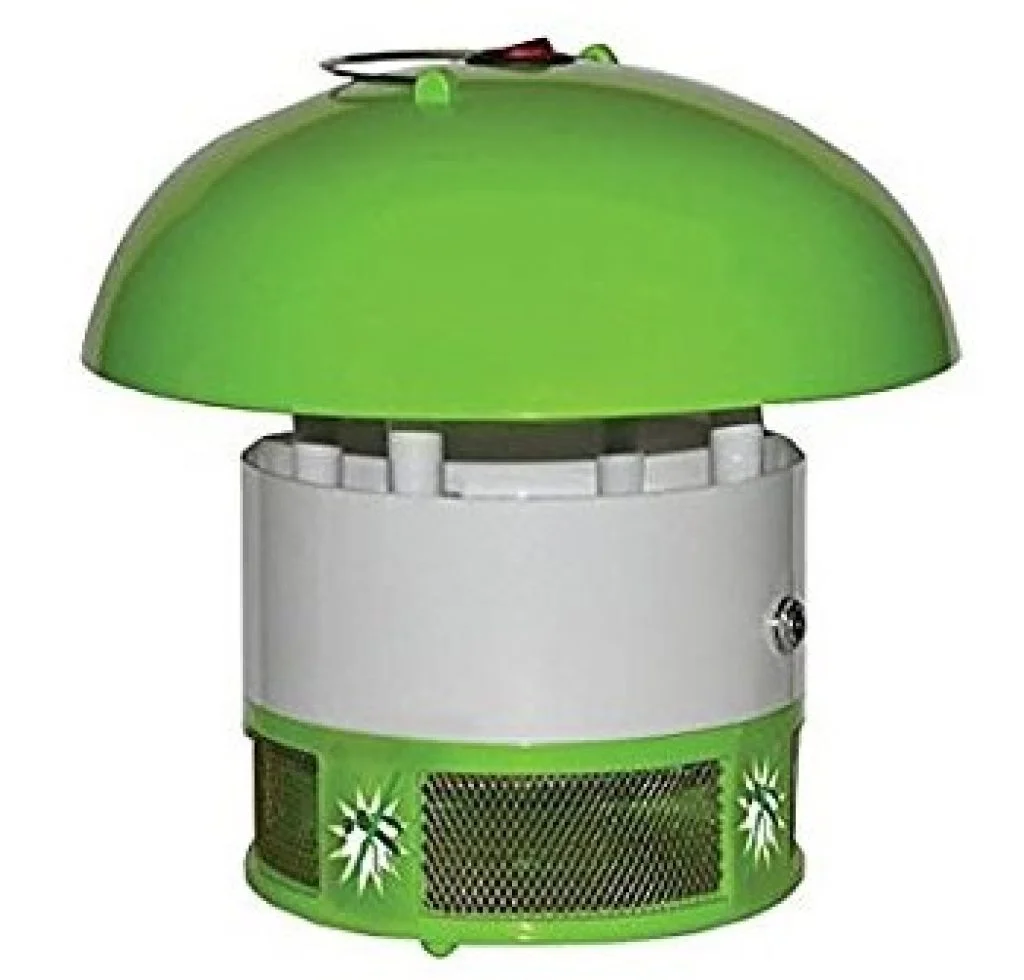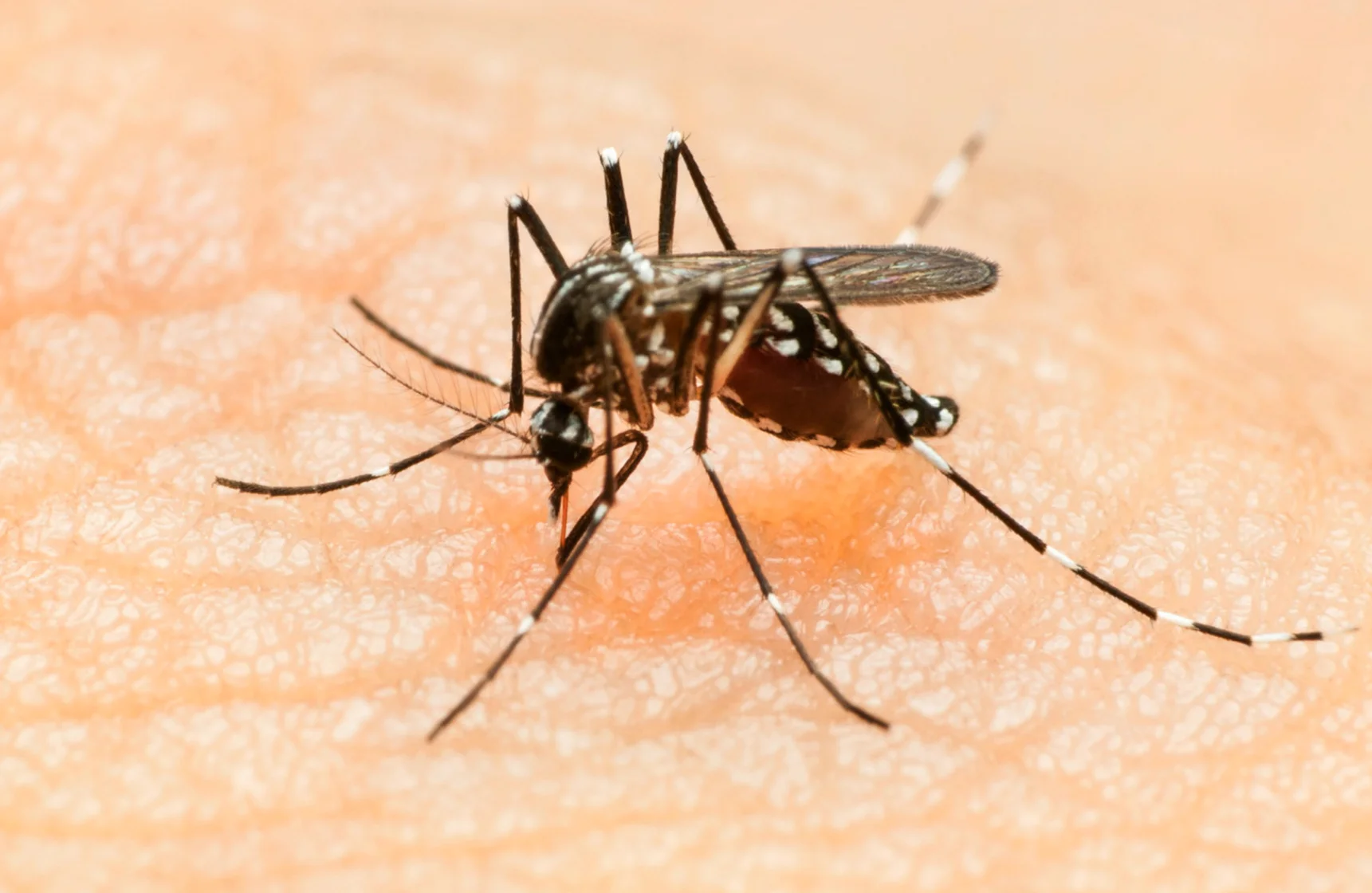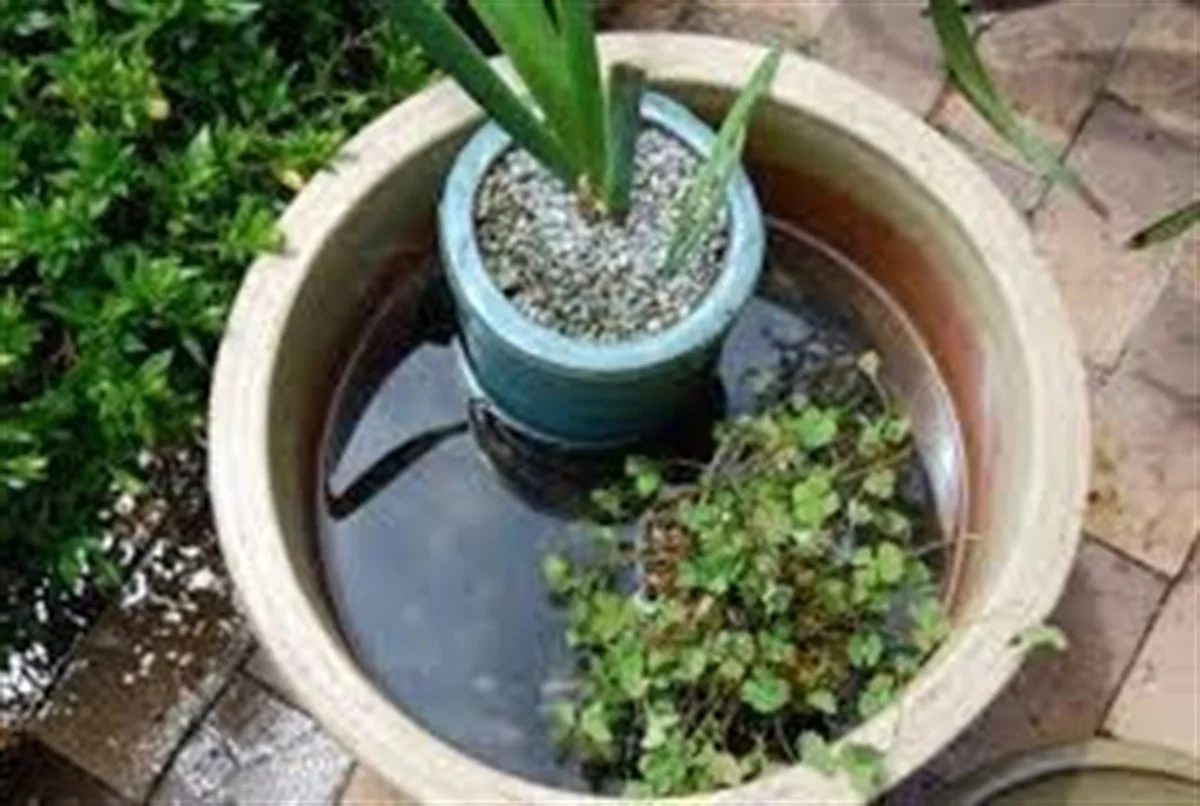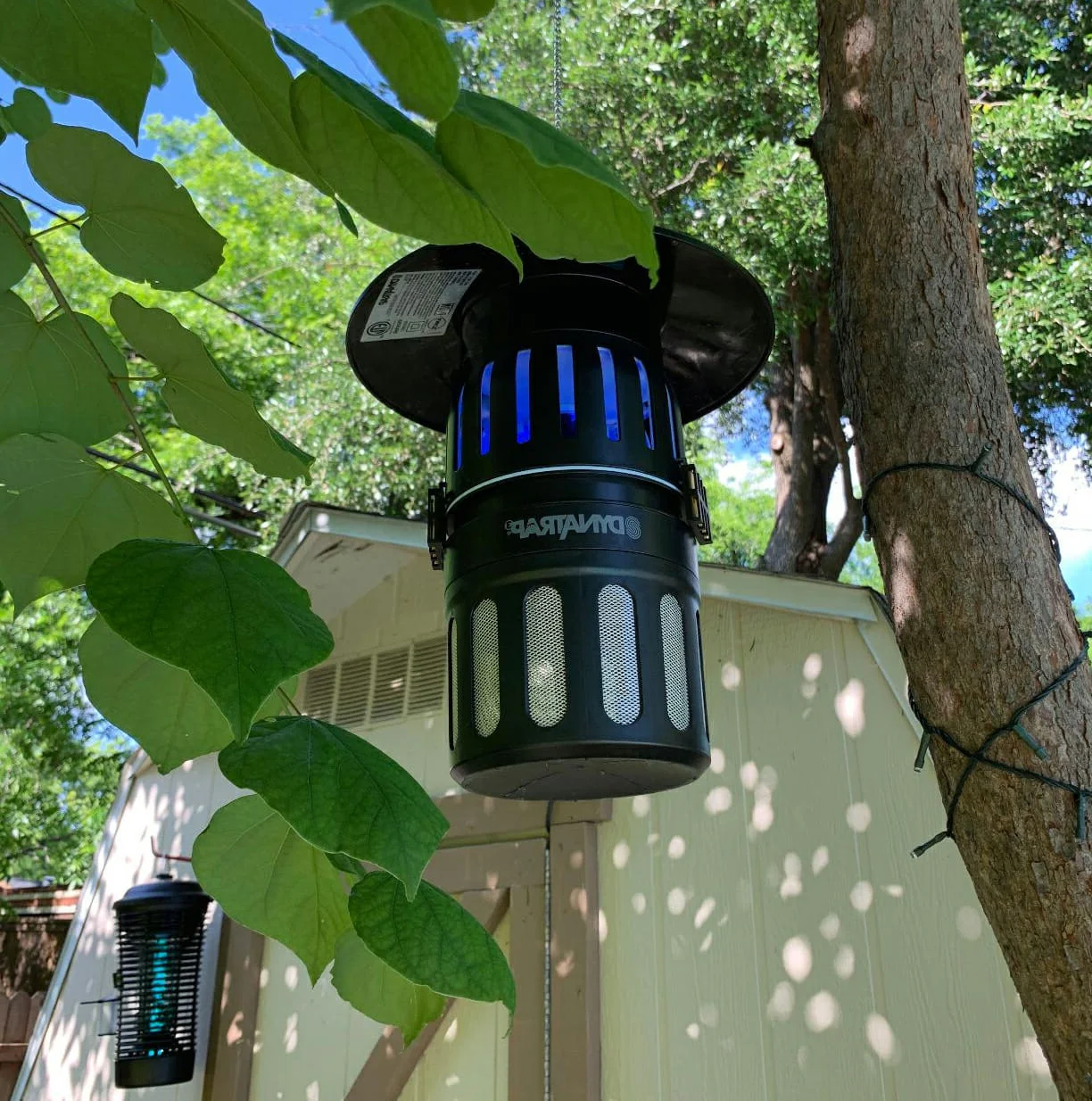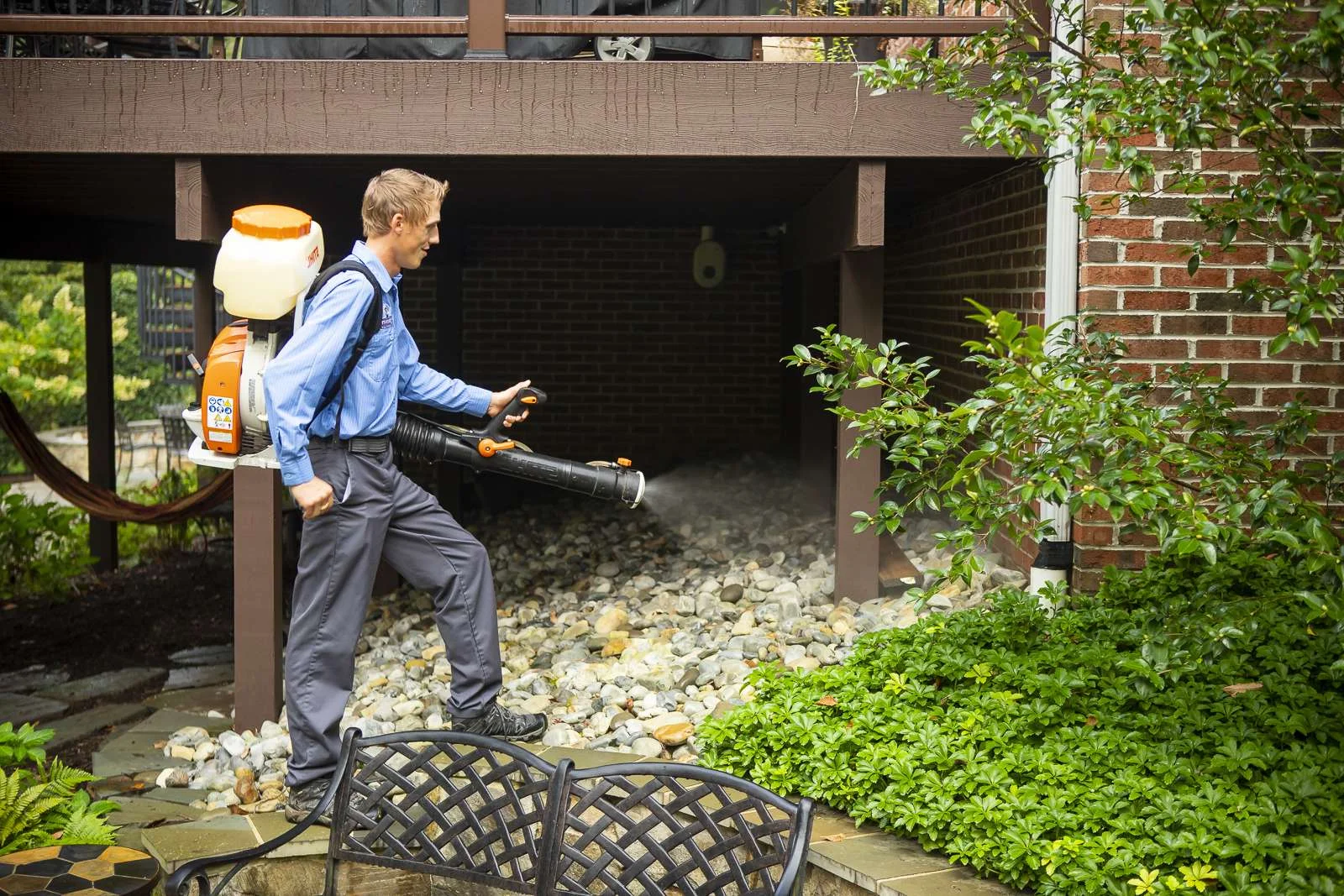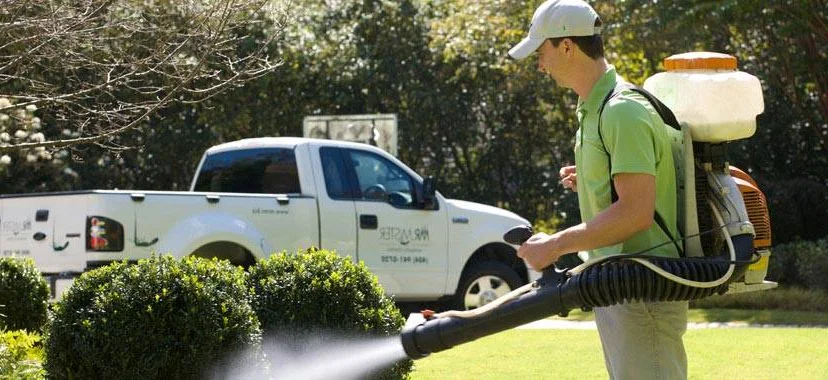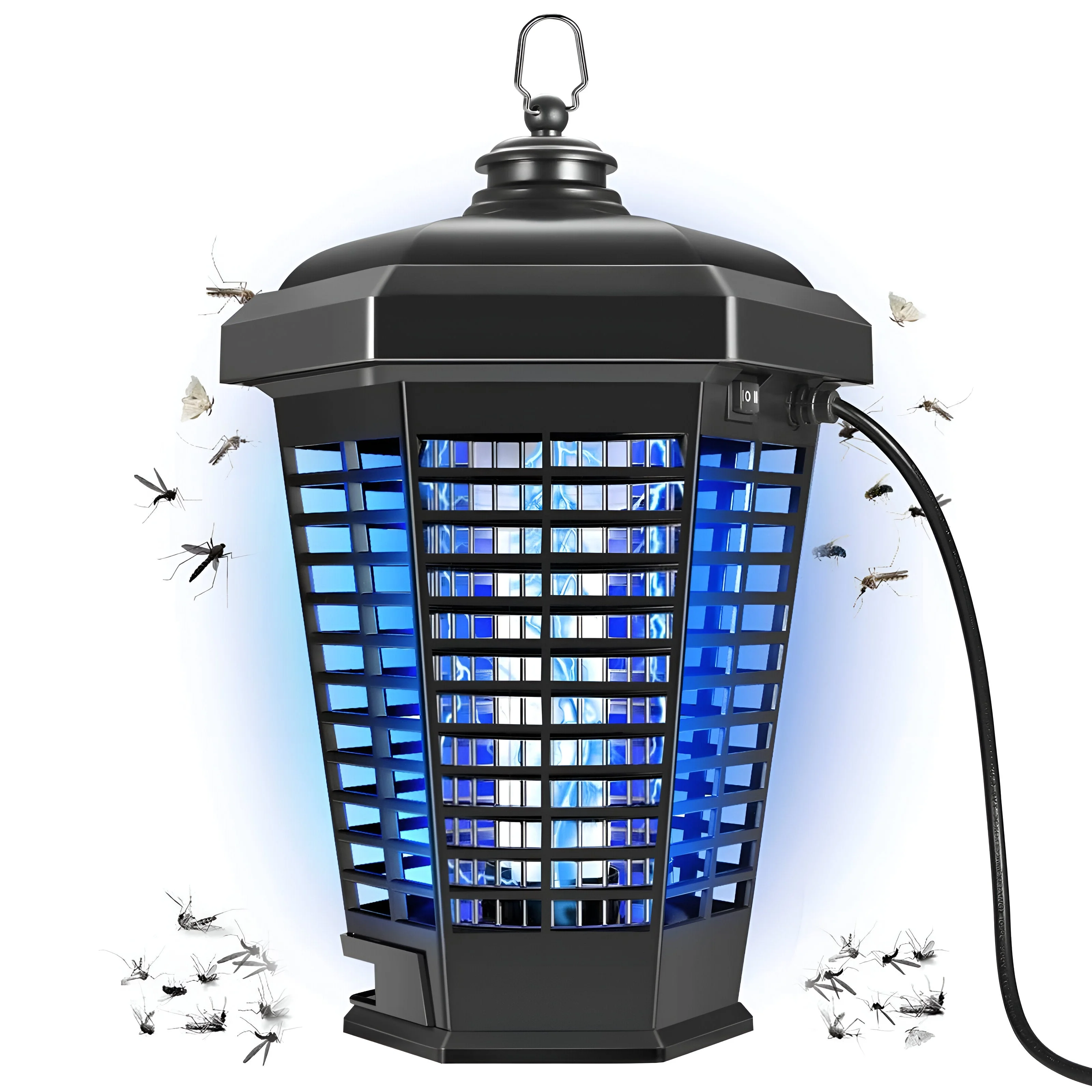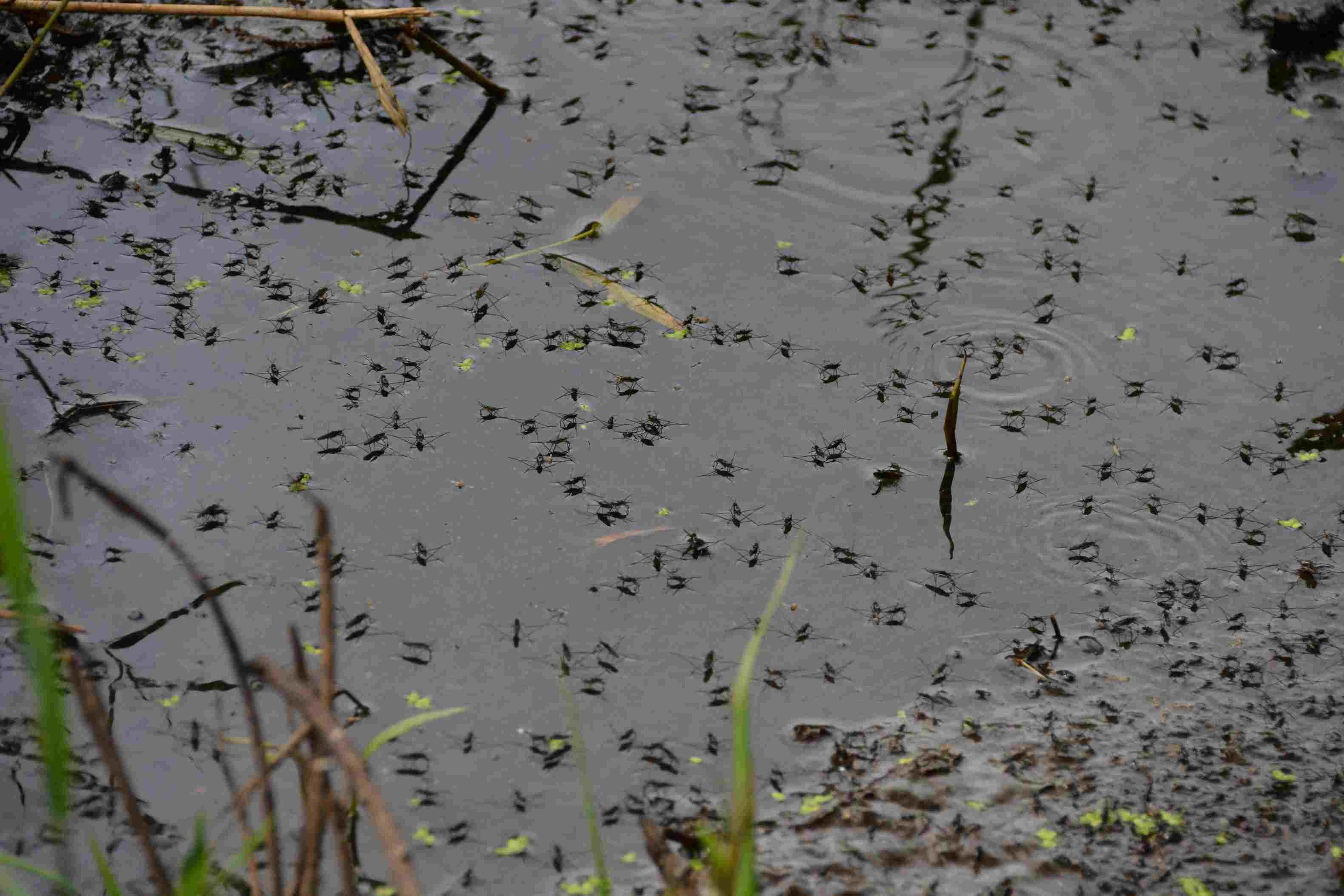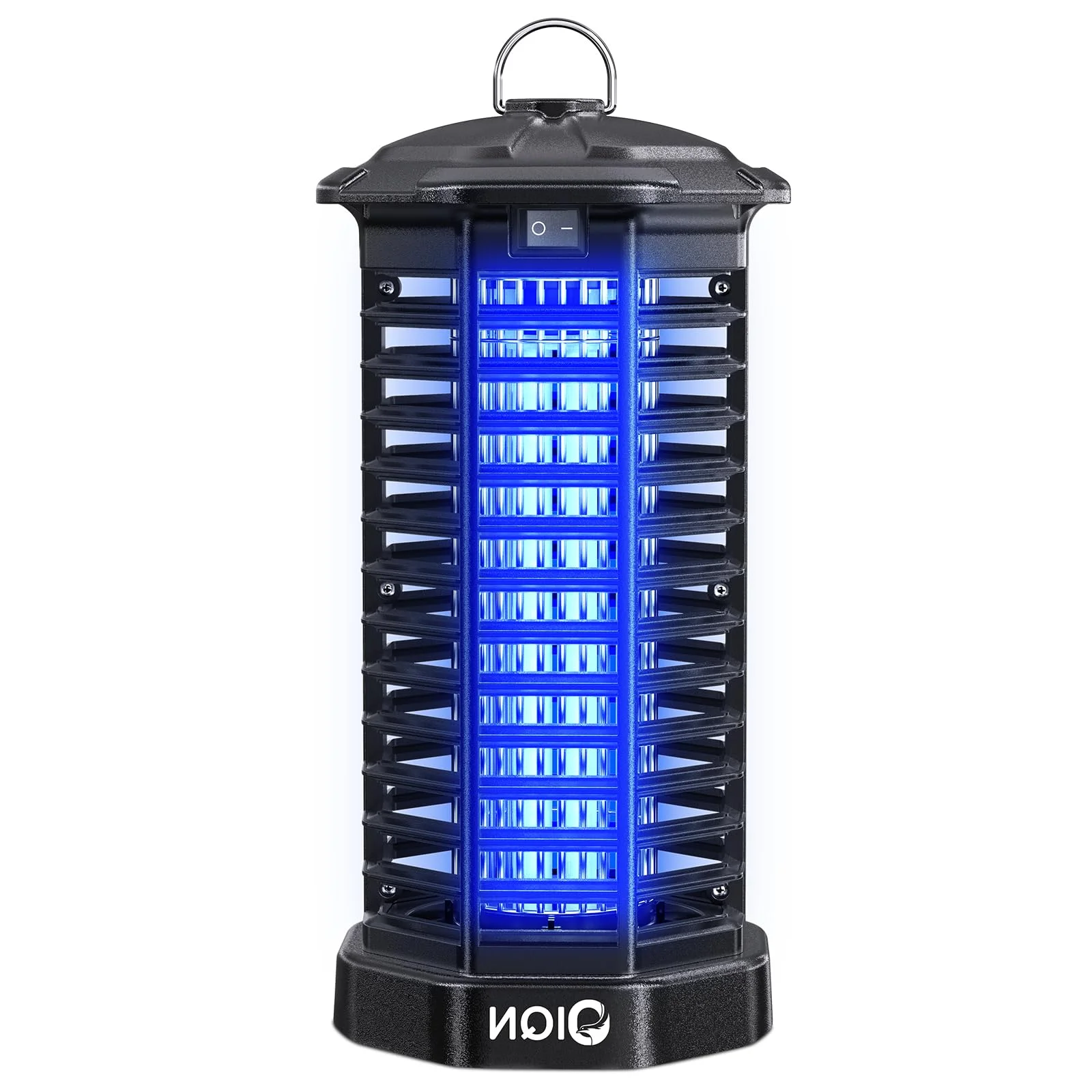Few pests can ruin outdoor activities as quickly as mosquitoes. Beyond the annoyance of itchy bites, these persistent insects pose serious health risks as vectors for diseases like West Nile virus, Zika, Eastern Equine Encephalitis, and others. With over 3,500 mosquito species worldwide and roughly 200 species in the United States alone, these adaptable pests thrive in diverse environments and remain one of our most significant public health challenges.
This comprehensive guide provides detailed information about mosquito identification, behavior patterns, breeding habits, and effective control methods. Whether you're dealing with a current mosquito problem or want to prevent future issues, this resource will help you understand the threats these persistent pests pose and how professional mosquito management can help you reclaim your outdoor spaces.
Tired of mosquitoes ruining your outdoor activities? Our mosquito control experts can substantially reduce mosquito populations around your property.
Schedule your free consultation today!
Common Mosquito Species
While hundreds of mosquito species exist in North America, certain species are most responsible for nuisance biting and disease transmission:
Aedes Mosquitoes
Aedes mosquito with distinctive black and white markings
Aedes mosquitoes include some of the most problematic species, particularly the Asian Tiger Mosquito (Aedes albopictus) and Yellow Fever Mosquito (Aedes aegypti).
Key Characteristics:
- Appearance: Black bodies with distinctive white stripes on legs and body
- Behavior: Aggressive daytime biters, particularly active at dawn and dusk
- Breeding Sites: Artificial containers like flowerpots, bird baths, clogged gutters, and other small water sources
- Disease Vectors: Primary vectors for Zika virus, dengue fever, chikungunya, and yellow fever
- Range: Common throughout the southern and eastern U.S.; increasingly found in northern regions due to climate change
Aedes mosquitoes are particularly problematic because they readily breed in small water sources near homes and can complete their lifecycle in as little as 7-10 days in ideal conditions.
Culex Mosquitoes
Culex species, including the Common House Mosquito (Culex pipiens), are widespread throughout North America and responsible for significant disease transmission.
Key Characteristics:
- Appearance: Brownish with pale bands on abdomen; lacking distinctive markings of Aedes species
- Behavior: Primarily active at night, particularly around dawn and dusk
- Breeding Sites: Standing water with organic matter, including storm drains, neglected pools, and polluted water
- Disease Vectors: Primary vectors for West Nile virus, St. Louis encephalitis, and Western equine encephalitis
- Range: Widespread across the United States in both urban and rural areas
Culex mosquitoes are noted for their ability to breed in a wide range of water sources, including those with significant pollution or organic content that other mosquito species avoid.
Culex mosquito larvae developing in standing water
Anopheles Mosquitoes
Anopheles mosquitoes are globally significant as malaria vectors, though malaria transmission in the U.S. is rare.
-
Appearance: Brown with three or four dark spots on wings; distinctive posture when resting (rear end raised)
-
Behavior: Primarily active during evening and night hours
-
Breeding Sites: Clean, clear water with vegetation, including rice fields, marshes, and swamps
-
Disease Vectors: Primary vectors for malaria worldwide; can rarely transmit other diseases in the U.S.
-
Range: Found throughout the United States, more common in southeastern regions
Other Notable Species
Depending on your region, you may encounter other significant mosquito species:
-
Mansonia Mosquitoes: Attach to aquatic plants for oxygen; vicious biters in wetland areas
-
Psorophora Mosquitoes: Large, aggressive floodwater mosquitoes with painful bites; called "gallinippers"
-
Coquillettidia Mosquitoes: Similar to Mansonia in behavior; important secondary vectors for Eastern equine encephalitis
-
Culiseta Mosquitoes: Large mosquitoes that prefer cool weather; often the first and last species seen each season
Regional Mosquito Variation
Mosquito species prevalence varies dramatically by region, climate, and local habitat. Your local PestControl100 specialist can identify the specific mosquito species in your area and recommend control strategies targeting those species' particular behaviors and breeding habits.
Mosquito Life Cycle & Biology
Understanding the mosquito life cycle is crucial for effective control, as different strategies target different life stages:
Mosquito development stages from egg to adult
Four-Stage Development
Mosquitoes undergo complete metamorphosis with four distinct life stages:
- Egg Stage: Female mosquitoes lay eggs on or near water surfaces, either in rafts of hundreds (Culex, Culiseta) or individually (Aedes, Anopheles). Aedes eggs can survive dry conditions for months.
- Larval Stage: After hatching, larvae (often called "wrigglers") live in water, coming to the surface to breathe through siphon tubes. They feed on microorganisms and organic matter in the water.
- Pupal Stage: The pupa (or "tumbler") is the transitional stage between larva and adult. Pupae don't feed but remain active, tumbling to the water's bottom when disturbed.
- Adult Stage: Newly emerged adults rest on the water surface until their wings dry and bodies harden. Adults then begin seeking food sources and, for females, blood meals for egg development.
In optimal conditions, mosquitoes can complete this lifecycle in as little as 7-10 days, though 10-14 days is more typical. This rapid reproduction rate explains why mosquito populations can explode quickly during warm, wet periods.
Breeding Requirements
All mosquitoes require water for breeding, but different species have specific preferences:
-
Container Breeders: Aedes mosquitoes can breed in tiny amounts of water (as little as a bottle cap)
-
Floodwater Mosquitoes: Species that lay eggs in dry areas that will eventually flood
-
Permanent Water Mosquitoes: Species preferring established water bodies like ponds and marshes
-
Specialized Breeders: Some species require specific conditions like tree holes, plant axils, or salt marshes
Beyond water, mosquito breeding success depends on temperature, with development accelerating in warmer conditions and slowing or stopping below 50°F (10°C).
Feeding Behavior
Only female mosquitoes bite, as they require blood proteins for egg development:
- Host Preferences: Some species prefer specific hosts (birds, mammals, or humans), while others are opportunistic
- Attraction Factors: Carbon dioxide, body heat, movement, dark clothing, and certain body chemicals all attract mosquitoes
- Feeding Times: Species-specific activity patterns range from daytime feeding (many Aedes) to dusk/dawn (many Culex) to nighttime (Anopheles)
- Non-Blood Feeding: Both males and females feed on plant nectar and sugars for energy
Individual attractiveness to mosquitoes varies based on factors including carbon dioxide output, body temperature, skin chemistry, and even blood type, explaining why some people seem to get bitten more than others.
Female mosquito taking a blood meal from human host
Seasonal Activity
Mosquito activity varies seasonally, with population dynamics influenced by climate:
-
Spring Emergence: Overwintering mosquitoes become active when temperatures consistently exceed 50°F
-
Summer Peak: Highest activity during warm, humid summer months with ample rainfall
-
Fall Decline: Activity reduces as temperatures drop, with some species preparing for overwintering
-
Winter Survival: Mosquitoes survive winter as eggs (Aedes), hibernating females (Culex, Anopheles), or larvae in protected water
In warmer southern climates, mosquito activity may continue year-round, while northern regions experience seasonal activity patterns.
Mosquito-Borne Disease Risks
Beyond the annoyance of itchy bites, mosquitoes pose significant health risks as vectors for numerous diseases:
Mosquito control is essential for disease prevention
Major Mosquito-Borne Diseases in the U.S.
- West Nile Virus: The most common mosquito-borne disease in the continental United States, causing symptoms ranging from mild fever to severe neurological complications in about 1% of cases
- Eastern Equine Encephalitis (EEE): A rare but serious viral disease with approximately 30% mortality rate and significant neurological damage in survivors
- St. Louis Encephalitis: A flavivirus related to West Nile that can cause inflammation of the brain
- La Crosse Encephalitis: Primarily affects children and can cause severe neurological damage
- Zika Virus: Particularly concerning for pregnant women due to risk of severe birth defects
- Dengue Fever: Increasingly found in southern states, causing severe flu-like symptoms and, in some cases, life-threatening complications
While less common in the U.S., mosquitoes globally transmit malaria, yellow fever, chikungunya, and other serious diseases that cause millions of deaths annually.
Pet and Livestock Health Risks
Mosquitoes also transmit diseases affecting animals:
-
Heartworm Disease: Potentially fatal parasitic infection transmitted to dogs and cats by mosquitoes
-
Eastern Equine Encephalitis: Affects horses with up to 90% mortality rate if unvaccinated
-
Western and Venezuelan Equine Encephalitis: Additional threats to horses and livestock
-
Avian Malaria: Affects bird populations, particularly in areas where birds lack natural immunity
Bite Reactions and Secondary Infections
Even without disease transmission, mosquito bites can cause:
-
Local Allergic Reactions: Ranging from mild itching to severe swelling and discomfort
-
Skeeter Syndrome: An intensified allergic reaction causing significant swelling, pain, and fever
-
Secondary Infections: Bacterial infections resulting from scratching mosquito bites
-
Anaphylaxis: In rare cases, severe systemic allergic reactions requiring emergency treatment
Public Health Importance
The World Health Organization identifies mosquitoes as one of the deadliest animals on the planet due to their role in disease transmission. Effective mosquito control is recognized as a critical public health measure, with professional management programs playing an important role in disease prevention.
Protect your family from mosquitoes and the diseases they carry! Our mosquito control experts can substantially reduce mosquito populations around your property.
Contact us today for a free consultation!
Professional Mosquito Control Methods
Effective mosquito management requires a comprehensive approach targeting all life stages. PestControl100 offers multiple control strategies that can be customized to your specific situation:
Mosquito Habitat Modification
Elimination of standing water to prevent mosquito breeding
The foundation of effective mosquito control is eliminating or treating breeding sites:
- Standing Water Elimination: Removing or regularly emptying water collection points
- Drainage Improvements: Addressing areas with poor drainage that create breeding habitats
- Vegetation Management: Trimming dense vegetation where adult mosquitoes rest
- Water Feature Management: Proper maintenance of ponds, fountains, and other permanent water features
- Gutter Cleaning: Ensuring proper flow to prevent water accumulation
Our technicians perform a thorough property assessment to identify all potential breeding sites and recommend appropriate modifications to reduce mosquito habitat.
Larvicide Treatments
For water sources that cannot be eliminated, larvicide treatments target mosquitoes in their aquatic stages:
- Biological Larvicides: Bacteria-based products (Bti, Bs) that specifically target mosquito larvae
- Insect Growth Regulators (IGRs): Compounds that prevent larvae from developing into adults
- Surface Films: Products that alter water surface tension, preventing larvae and pupae from breathing
- Extended-Release Formulations: Long-lasting products providing weeks of control
Larvicides are environmentally responsible options that target mosquitoes before they become biting adults, while having minimal impact on beneficial organisms when properly applied.
Application of larvicide to standing water that cannot be eliminated
Barrier Treatments
Barrier treatments are applied to areas where adult mosquitoes rest during the day:
-
Targeted Application: Sprays applied to foliage, shrubs, and other mosquito resting places
-
Residual Protection: Treatments provide extended control, typically lasting 3-4 weeks
-
Strategic Coverage: Focus on shaded, humid areas where mosquitoes shelter during daylight hours
-
Reduced-Impact Options: Various formulations available, including botanical-based options
-
Regular Maintenance: Periodic reapplication maintains protection throughout mosquito season
These treatments dramatically reduce adult mosquito populations in treated areas, providing noticeable relief from biting activity.
Mosquito Misting Systems
Automated mosquito misting system for consistent protection
For properties with persistent mosquito problems, automated misting systems provide consistent control:
- Permanent Installation: Nozzles installed around property perimeter and in high-activity areas
- Programmable Operation: System releases short bursts of control products at scheduled times
- Remote Control Options: Smartphone apps allow manual activation when needed
- Product Choices: Compatible with various control products, including natural options
- Professional Maintenance: Regular service ensures optimal system performance
These systems provide the ultimate in convenience and consistent protection, automatically maintaining mosquito control with minimal effort required.
Special Event Treatments
For weddings, parties, or other outdoor gatherings, one-time treatments provide temporary relief:
-
Timed Application: Treatment 24-48 hours before your event
-
Comprehensive Coverage: Treatment of the entire outdoor venue area
-
Fast-Acting Formulations: Rapid knockdown of existing mosquito populations
-
Multiple Options: Traditional or botanical treatments available
-
Event-Specific Planning: Treatment strategies tailored to your specific venue and needs
Integrated Mosquito Management
The most effective approach combines multiple control strategies in an integrated program:
-
Comprehensive Assessment: Thorough property evaluation to identify all risk factors
-
Multi-Faceted Approach: Combining breeding site elimination, larvicides, and adult control
-
Ongoing Monitoring: Regular property checks to identify new issues
-
Adaptive Strategies: Adjusting treatments based on mosquito activity and environmental conditions
-
Education Component: Client guidance on maintaining mosquito-free conditions
This integrated approach provides the most sustainable and effective mosquito management, addressing all life stages and habitats.
DIY vs. Professional Mosquito Control
Many homeowners attempt do-it-yourself mosquito control before seeking professional help. Understanding the capabilities and limitations of DIY approaches helps make informed decisions:
| Control Method |
DIY Approach |
Professional Service |
| Habitat Modification |
Homeowners can eliminate obvious standing water and perform basic yard maintenance to reduce mosquito habitat.
|
Professionals identify less obvious breeding sites, provide comprehensive drainage recommendations, and offer solutions for water features and problem areas.
|
| Larvicide Treatments |
Consumer larvicide products (dunks, granules) available for treating standing water, but often applied inconsistently.
|
Access to professional-grade extended-release larvicides; knowledge of correct application rates and timing for maximum effectiveness.
|
| Barrier Treatments |
Consumer sprays provide limited residual activity and often miss key resting areas; challenging to apply effectively without proper equipment.
|
Professional-grade residual products applied with specialized equipment for thorough coverage and extended protection; precise application to key mosquito resting sites.
|
| Long-Term Strategy |
Often reactive and inconsistent, addressing symptoms rather than underlying issues; limited by product availability and application knowledge.
|
Comprehensive approach addressing all aspects of mosquito control; regular scheduled service maintains protection throughout season; professional knowledge of mosquito biology informs effective strategy.
|
Professional application with specialized equipment
When to Choose Professional Service
Professional mosquito control is particularly valuable in these situations:
- Persistent Mosquito Problems: Despite DIY efforts, mosquitoes continue to make outdoor areas unusable
- Properties Near Water Sources: Homes adjacent to ponds, lakes, wetlands, or other water features that create constant mosquito pressure
- Special Outdoor Events: Weddings, parties, or gatherings where mosquito-free conditions are essential
- Health Concerns: Family members with heightened health risks from mosquito-borne diseases
- Complex Properties: Large properties or those with multiple mosquito breeding areas difficult to manage without professional help
Many customers combine DIY maintenance with professional service for optimal results, handling basic habitat management themselves while relying on professionals for regular barrier treatments and larvicide applications.
Supplemental Mosquito Control Methods
Beyond our core professional services, several supplemental control methods can enhance your mosquito management strategy:
Mosquito Traps
Various trap types capture mosquitoes at different life stages:
-
CO2 Traps: Devices that emit carbon dioxide to attract and capture adult mosquitoes
-
Gravid Traps: Target egg-laying females by mimicking attractive breeding sites
-
Light Traps: Use specific light frequencies to attract certain mosquito species
-
Combination Traps: Employ multiple attractants for enhanced effectiveness
While traps can help reduce mosquito populations in limited areas, they work best as part of a comprehensive control program rather than as standalone solutions.
Biological Controls
Natural predators and biological agents can contribute to mosquito control:
- Mosquito Fish (Gambusia): Small fish that consume mosquito larvae in ponds and water features
- Dragonflies: Both nymphs and adults feed on mosquitoes, though their impact is limited in residential settings
- Bat Houses: While bats consume many insects, their impact on mosquitoes is often overstated
- Beneficial Nematodes: Microscopic worms that can reduce mosquito larvae in some environments
These biological approaches are most effective in specific environments and typically serve as complements to other control methods rather than primary solutions.
Biological controls can help manage mosquitoes in water features
Physical Barriers
Creating physical separation from mosquitoes can provide relief in specific areas:
-
Screened Enclosures: Patios, porches, and pool areas protected with fine-mesh screening
-
Bed Nets: Particularly important in areas with disease-carrying mosquitoes
-
Window and Door Screens: Properly maintained screens to prevent indoor intrusion
-
Outdoor Fans: Strategic fan placement can reduce mosquito activity in seating areas
These physical approaches provide mosquito-free zones but don't address the underlying population issues.
Personal Protection
Individual protection measures remain important even with property-wide control:
-
EPA-Registered Repellents: Products containing DEET, picaridin, IR3535, or oil of lemon eucalyptus
-
Appropriate Clothing: Long sleeves and pants during peak mosquito activity
-
Timing Adjustments: Limiting outdoor activity during prime mosquito feeding times
-
Permethrin-Treated Clothing: For high-risk areas or sensitive individuals
Comprehensive Approach
The most effective mosquito management strategy combines professional control services with appropriate supplemental methods and personal protection measures. Our mosquito control specialists can help you determine the optimal combination for your specific situation.
Take back your yard from mosquitoes! Our mosquito control experts provide customized solutions for effective reduction of mosquito populations.
Schedule your free consultation today!
Mosquito Prevention Tips
Between professional treatments, these preventive measures help maintain mosquito control:
Eliminating standing water is essential for mosquito prevention
Eliminate Breeding Sites
The most effective mosquito prevention starts with eliminating breeding opportunities:
- Empty Standing Water: Regularly check and empty containers that collect water, including flower pots, children's toys, bird baths, and pet dishes
- Clean Gutters: Keep gutters free of debris to prevent water pooling
- Address Drainage Issues: Fix areas where water collects after rain
- Maintain Water Features: Keep pools properly chlorinated, maintain pond aeration, and consider stocking ornamental ponds with mosquito fish
- Cover or Dump: Store buckets, wheelbarrows, and other containers upside down when not in use
Even small amounts of standing water can breed hundreds of mosquitoes in just a week, making regular property checks important during mosquito season.
Landscape Management
Your yard maintenance practices can help reduce mosquito resting areas:
-
Regular Mowing: Keep grass short to reduce adult mosquito resting areas
-
Vegetation Management: Trim shrubs and thin dense vegetation where mosquitoes rest
-
Remove Yard Waste: Clean up leaf litter and other debris that holds moisture
-
Strategic Planting: While "mosquito-repellent plants" have limited effectiveness, proper landscape design can reduce harboring areas
-
Irrigation Management: Avoid overwatering and schedule irrigation for morning hours to allow drying
Home Maintenance
Proper home maintenance reduces mosquito entry and breeding sites:
- Screen Maintenance: Repair or replace damaged window and door screens
- Seal Entry Points: Caulk gaps around windows, doors, and utility entrances
- Check for Leaks: Address plumbing leaks and air conditioning condensation issues
- Maintain Drainage Systems: Keep French drains, ditches, and other drainage structures functional
- Treat Rare-Use Drains: Pour water down floor drains regularly to prevent mosquito breeding
These maintenance practices not only help prevent mosquito problems but also protect your home from other pests and moisture-related issues.
Proper home maintenance helps prevent mosquito problems
Community Efforts
Mosquito control is most effective when entire neighborhoods participate:
-
Neighbor Coordination: Work with neighbors to eliminate breeding sites throughout the area
-
Community Cleanups: Participate in or organize cleanup efforts for common areas and drainage systems
-
Report Problem Areas: Notify local mosquito control authorities about abandoned properties or public areas with mosquito issues
-
Support Local Programs: Engage with community mosquito control initiatives
Since mosquitoes can travel several hundred yards from their breeding sites, community-wide prevention efforts provide the most comprehensive protection.
Prevention Between Treatments
These preventive measures are particularly important between professional treatments, helping maintain control and extending the effectiveness of professional applications. Our mosquito specialists can provide property-specific recommendations during your service visits.
Frequently Asked Questions About Mosquitoes
Why do some people get bitten by mosquitoes more than others?
Mosquito attraction varies significantly between individuals due to several biological factors. Carbon dioxide is the primary attractant, and people who produce more CO2 (generally larger individuals or those with higher metabolic rates) often attract more mosquitoes. Body chemistry plays a major role, with mosquitoes responding to over 300 chemical compounds on human skin. Genetic factors influence these chemical signatures, including the production of specific fatty acids and other compounds that some mosquitoes find particularly attractive. Studies have shown that blood type can also influence attraction, with Type O individuals often receiving more bites than those with Type A. Body heat and moisture are additional factors, making active, sweaty people more noticeable to mosquitoes. Even clothing choices matter—mosquitoes are more attracted to dark colors and can more easily detect people wearing black, navy, or red compared to lighter colors. While you can't change your genetic makeup or blood type, understanding these factors helps explain the variation in mosquito attention and can inform personal protection strategies like appropriate repellent use and clothing choices.
How long do mosquito control treatments last?
The duration of mosquito control treatments depends on several factors, including the treatment type, environmental conditions, and mosquito pressure in your area. Professional barrier treatments typically provide effective control for 21-30 days under normal conditions. However, heavy rainfall (generally over 1/2 inch), high temperatures, and intense sun exposure can reduce this duration by breaking down the active ingredients more quickly. Larvicide treatments vary widely in longevity; some provide control for 7-10 days, while extended-release formulations can remain effective for 30-60 days or longer. For automated misting systems, effectiveness depends on the programmed frequency of applications and the specific products used. One-time treatments for special events typically provide 2-3 days of significant reduction. Environmental conditions play a major role in treatment longevity—treatments applied during periods of frequent rain or in areas with sprinkler irrigation may need more frequent reapplication. Similarly, properties bordering untreated natural areas with high mosquito populations may experience shorter periods of relief due to constant reinfestation pressure. During your consultation, our mosquito specialists will recommend an optimal treatment schedule based on your specific property characteristics and local conditions.
Are mosquito treatments safe for pollinators like bees and butterflies?
When properly applied by trained professionals, modern mosquito treatments can minimize impact on beneficial insects, including pollinators. Our approach prioritizes pollinator protection through several methods: First, we use targeted application techniques focused on areas where mosquitoes rest—primarily the undersides of leaves and shaded areas—rather than broadcast spraying entire landscapes. Second, we avoid treating flowering plants whenever possible, as these are primary feeding sites for pollinators. Third, we time applications for when pollinators are least active, typically early morning or evening when many bees have returned to their hives. Fourth, we offer reduced-impact product options, including botanical-based treatments, for environmentally sensitive areas or customers with specific concerns about pollinators. Our integrated approach emphasizes habitat modification and larvicides in water sources—methods that have minimal impact on pollinators. For customers particularly concerned about pollinator protection, we can develop customized treatment plans that focus on these alternative methods while still providing effective mosquito control. We regularly review and adopt the latest best practices for protecting beneficial insects while effectively managing mosquito populations, aligning our services with integrated pest management principles that minimize environmental impact.
Can mosquitoes transmit diseases other than those carried in blood?
Mosquitoes primarily transmit pathogens present in blood, but they can also spread certain diseases through other mechanisms. The majority of mosquito-borne diseases—including malaria, dengue, Zika, and West Nile virus—are transmitted when a mosquito ingests blood containing the pathogen from an infected host and subsequently injects it into another host during feeding. However, mosquitoes can also mechanically transmit some pathogens without the pathogen actually developing within the mosquito. This happens when a mosquito feeds on an infected host and then, with contaminated mouthparts, immediately feeds on another host. Additionally, some mosquito-borne pathogens can be transmitted vertically from female mosquitoes to their offspring, a process called transovarial transmission. This is documented with certain viruses, including some strains of La Crosse encephalitis and dengue. Mosquitoes can also transmit myxomatosis, a disease affecting rabbits, through their feces rather than through blood feeding. While these non-blood transmission routes are less common than traditional blood-borne transmission, they highlight the complexity of mosquito-disease relationships and the importance of comprehensive mosquito control as a public health measure.
How effective are citronella candles and other DIY repellent methods?
Common DIY mosquito repellent methods like citronella candles, torches, and plants offer limited effectiveness compared to professional control measures. Research shows that citronella candles reduce mosquito bites by only about 14-20% in their immediate vicinity, providing some relief but far from complete protection. The effectiveness of these methods depends heavily on environmental conditions—even slight breezes can disperse the repellent compounds, rendering them ineffective. Other DIY approaches like ultrasonic repellers have been consistently proven ineffective in scientific studies. Mosquito-repellent plants such as citronella grass, lavender, and marigolds provide minimal protection in their natural state; the oils must be extracted and concentrated to offer meaningful repellency. Electric bug zappers, while popular, primarily kill non-biting insects rather than female mosquitoes and may actually reduce natural predator populations. Devices that burn mosquito coils can provide better protection (up to 42% reduction in some studies) but require continuous use and proper placement. For personal protection, EPA-registered repellents containing DEET, picaridin, IR3535, or oil of lemon eucalyptus remain the most reliable DIY option. While these various DIY methods can supplement a comprehensive mosquito management program, they generally don't provide sufficient standalone protection in areas with significant mosquito pressure.
What Our Mosquito Control Customers Say
"After years of barely using our backyard due to mosquitoes, we finally tried PestControl100's seasonal mosquito program. What a difference! We can actually enjoy evening barbecues without being eaten alive. Their technicians are always professional and take time to answer all our questions. Worth every penny for the ability to use our outdoor space again."
- Jennifer K., Homeowner
★★★★★
"We hired PestControl100 for a one-time mosquito treatment before our daughter's outdoor graduation party. The technician was incredibly thorough, treating our entire yard and explaining exactly what he was doing. The party was a complete success with guests commenting on how surprisingly mosquito-free our backyard was. We've since signed up for their regular service."
- Michael R., Event Host
★★★★★
"As someone concerned about pollinators, I was hesitant about mosquito treatments. The team at PestControl100 listened to my concerns and created a custom approach using their natural options and focusing on larvicide. I've been impressed with how they target their applications to protect bees while still effectively controlling mosquitoes. It's the balanced approach I was hoping for."
- Sarah T., Environmentally Conscious Customer
★★★★★
Don't let mosquitoes ruin your outdoor enjoyment! Our proven
mosquito control solutions provide effective protection all season long –
contact us today to reclaim your yard!

